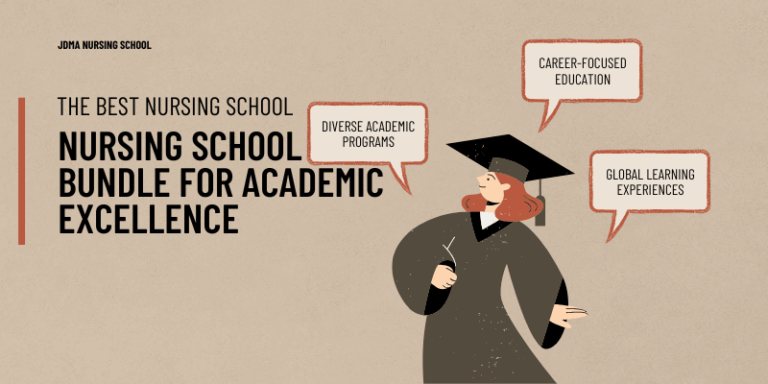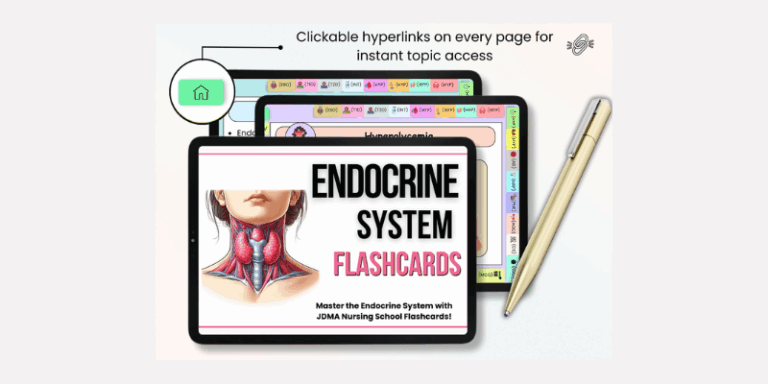
Best Nursing School Bundle for Academic Excellence
Find out which best nursing school bundle ranks best for knowledge retention and test prep. Choose the right bundle for success.
Kullanıcılarına güvenli ortam sağlayan altyapısıyla Bettilt sektörde ön plandadır.
Kullanıcıların sisteme erişim için ilk durağı Bettilt adresidir.
Online bahislerde yüksek kazanç isteyenlerin tercihi her zaman güvenilir bahis siteleri olmuştur.
Her zaman kullanıcı odaklı düşünen Bettilt casino, basit kayıt süreci ve sade tasarımıyla yeni başlayanlar için idealdir.
Bahis sektöründe adından sıkça bettilt söz ettiren kaliteyi ön planda tutuyor.
Kazançlı kombinasyonlar hazırlamak isteyenler için bettilt analiz desteği sunar.
Türk bahis pazarının büyüme oranı bahsegel hoşgeldin bonusu yıllık %14 bu trendi yakından takip eder.
Medical surgical nursing is one of the most important and diverse fields in healthcare. It focuses on caring for adult patients with a wide range of medical conditions from diabetes and heart disease to post surgical recovery. Often called the “backbone of nursing,” this specialty requires strong clinical skills, critical thinking and compassion.
“Medical surgical nursing is the foundation of all nursing practice,”
says the Academy of Medical Surgical Nurses (AMSN). With over 650,000 nurses in this field it is the largest nursing specialty in the U.S. (AMSN). These nurses work in hospitals, clinics and outpatient centers that providing essential care and improving patient outcomes.
For those looking to enter this field of a medical-surgical course offers the knowledge and hands on experience needed to succeed. “This specialty challenges you to think fast, adapt, and make a real difference in patients’ lives,” explains a senior medical-surgical nurse. It is a career that blends science, skill and heart.
Medical-surgical nursing goes beyond hospital walls, reaching clinics, outpatient centers and long term care facilities. Nurses in this specialty play a crucial role in assessing patients, diagnosing conditions, providing treatments and educating families about care at home. They manage a wide range of illnesses including diabetes, hypertension, respiratory disorders and post-surgical recovery.
“Medical-surgical nurses are the frontline caregivers in diverse healthcare settings,”
says the Academy of Medical-Surgical Nurses (AMSN). Their ability to multitask and think critically makes them essential in patient care. A strong medical-surgical course prepares nurses with the skills needed to handle complex cases from wound care to pain management and emergency interventions.
“This specialty challenges you every day,” shares an experienced medical-surgical nurse. “You need both technical skills and compassion to support patients through recovery.” With the right training and dedication medical-surgical nursing offers a fulfilling and impactful career in healthcare.
Medical-surgical nursing requires a unique blend of clinical expertise, quick decision making and compassionate care. Nurses in this field are responsible for patient assessment, monitoring vital signs and detecting early complications. They ensure safe medication administration that preventing adverse reactions.
“Medical-surgical nurses are at the heart of patient care,” says the Academy of Medical-Surgical Nurses (AMSN). They also specialize in wound care, managing post-surgical healing and preventing infections. A strong medical-surgical course prepares nurses to educate patients on self care and chronic disease management.
“Collaboration is key we work closely with doctors and therapists to improve patient outcomes,” shares an experienced nurse.
New nurses often find medical-surgical nursing challenging due to the vast amount of information they need to learn. Here are some crucial topics.
In medical-surgical nursing understanding how diseases impact the body is essential for effective patient care. Conditions like heart failure which affects nearly 6.2 million adults in the U.S. can lead to frequent hospital visits and strain healthcare systems.
“Medical-surgical nurses must recognize early symptoms and act fast,” says the Academy of Medical-Surgical Nurses (AMSN). A strong medical-surgical course teaches nurses how to manage chronic illnesses, prevent complications and improve patient outcomes.
“Knowing the science behind diseases helps us provide better care and educate patients on managing their health,” shares an experienced medical-surgical nurse.
In medical-surgical nursing proper medication administration is critical to patient safety. The Institute for Safe Medication Practices (ISMP) reports that medication errors cause at least one death per day and harm about 1.3 million people annually in the U.S..
“Every dose matters accuracy saves lives,” says the ISMP. A strong surgical course trains nurses to calculate dosages correctly, recognize drug interactions and prevent errors. “We double check everything because even a small mistake can have serious consequences,” shares an experienced nurse. Ensuring medication safety is a key responsibility in this demanding yet rewarding field.
In medical-surgical nursing knowing how to care for patients before and after surgery is essential. Common procedures like appendectomies and joint replacements require close monitoring to prevent complications such as infections and deep vein thrombosis (DVT).
“Post operative care is critical small signs can indicate major complications,” says the Academy of Medical-Surgical Nurses (AMSN).
A stron course prepares nurses to manage pain, monitor wounds and educate patients on recovery.
“Helping patients heal safely and regain independence is one of the most rewarding parts of the job,” shares an experienced medical-surgical nurse. Effective post op care leads to better patient outcomes.
Maintaining fluid and electrolyte balance is a key part of medical-surgical nursing. Even a small imbalance can cause serious problems. For example hyponatremia (low sodium levels) can lead to confusion, seizures and even coma.
“Nurses must recognize early signs of imbalance to prevent life-threatening complications,” says the Academy of Medical-Surgical Nurses (AMSN).
A strong medical-surgical course teaches how to monitor lab values, assess hydration and manage IV fluids. “Balancing electrolytes is like fine tuning the body’s engine it keeps everything running smoothly,” shares an experienced nurse. Proper management ensures better patient recovery and safety.
In medical-surgical nursing, emergencies can happen at any moment. Nurses must be ready to act fast in life threatening situations like cardiac arrest, sepsis and respiratory failure. Quick thinking and immediate intervention can save lives.
“Medical-surgical nurses are often the first to recognize a crisis and respond,” says the Academy of Medical-Surgical Nurses (AMSN). A strong course trains nurses in CPR, rapid assessments and emergency protocols.
“In a critical moment, every second counts,” shares an experienced medical-surgical nurse. Staying calm under pressure and making the right decisions is what makes this specialty both challenging and rewarding.
In medical-surgical nursing remembering complex medical information is crucial. Mnemonics make it easier to recall important details especially in high pressure situations. For example, the MURDER mnemonic helps nurses remember the symptoms of hyperkalemia (high potassium):
M – Muscle weakness
U – Urine abnormalities
R – Respiratory distress
D – Decreased cardiac contractility
E – ECG changes
R – Reflexes (hyper or hypo)
“A good mnemonic can make a life saving difference,” says an experienced nurse. A strong medical-surgical course teaches these techniques helping nurses quickly recall critical information and provide better patient care.
Success in medical nursing requires strong critical thinking skills. Many exams including the NCLEX focus on real world scenarios rather than just memorization. Practicing NCLEX style questions helps nurses apply their knowledge to patient care situations.
“The best way to prepare is to think like a nurse,” says an experienced medical-surgical instructor. A strong medical-surgical course includes practice questions that test decision making, prioritization and problem solving.
“These questions train you to assess a situation identify the most critical issue, and take the right action,” explains a medical-surgical nurse. Consistent practice builds confidence and improves test performance.
In medical nursing, complex concepts like disease processes and treatments can be overwhelming. Visual tools like diagrams, charts and videos make learning easier and more engaging. Websites like Khan Academy and Nursing.com offer excellent resources that simplify difficult topics.
“Seeing a concept visually helps it stick,” says an experienced nurse educator. A strong course incorporates these tools to improve understanding and retention.
“I used to struggle with electrolyte imbalances until I watched an animation it finally made sense,” shares a nursing student. Visual learning helps nurses grasp key information faster and apply it effectively in patient care.
Studying in a group makes learning nursing more effective and enjoyable. Discussing topics with peers helps break down complex concepts and improves retention. Everyone brings different strengths which makes it easier to fill knowledge gaps.
“Explaining something to others helps you understand it better yourself,” says an experienced medical nurse. A strong course encourages group discussions, allowing students to test their knowledge and learn from different perspectives.
“I struggled with pharmacology until my study group created flashcards and quizzes it changed everything,” shares a nursing student. Teamwork makes studying more interactive and boosts confidence for exams.
The most effective way to learn medical-surgical nursing is by applying what you’ve studied during clinical rotations. Observing real life patient cases helps make theoretical knowledge more meaningful and easier to understand.
“Clinical practice is where everything clicks,” says a seasoned medical-surgical nurse. A strong medical-surgical course includes hands-on experiences that bridge the gap between classroom learning and real world care.
“When I saw how to manage a post op wound in person, it made all the textbook information come alive,”
shares a nursing student. Gaining practical experience is essential for reinforcing knowledge and building confidence as a nurse.
Medical-surgical nursing is a dynamic and rewarding specialty that requires constant learning and growth. By mastering essential concepts, developing strong critical thinking and applying knowledge in clinical settings new nurses can excel.
As Florence Nightingale wisely said, “Let us never consider ourselves finished nurses. We must be learning all of our lives”.
A strong medical-surgical course provides the foundation needed for success but it is the ongoing commitment to learning and improving that truly sets great nurses apart. Stay curious, practice diligently and embrace the journey of lifelong learning in this vital field.

Find out which best nursing school bundle ranks best for knowledge retention and test prep. Choose the right bundle for success.

Complete nursing school workbook bundle! Includes flashcards for nursing students, cheat sheets, dosage calculation practice, and more.

Master nursing concepts faster with our nursing school flashcards bundle! Printable & digital options for effective studying.
By subscribing to our newsletter you agree to our Terms and Conditions and Privacy Policy